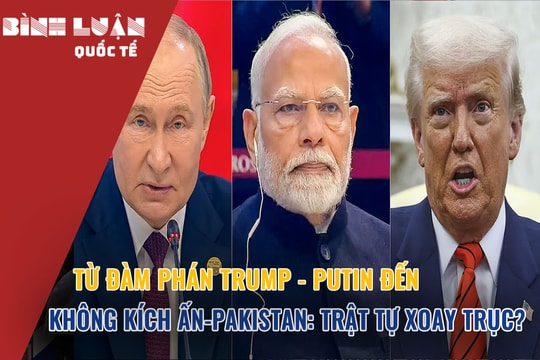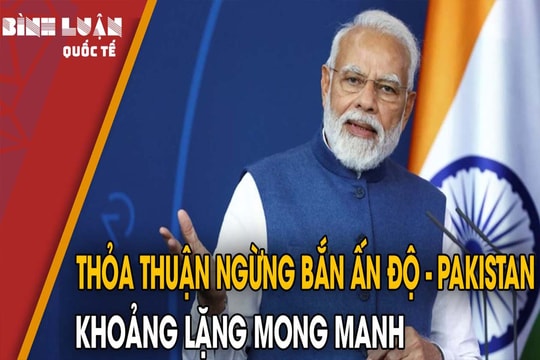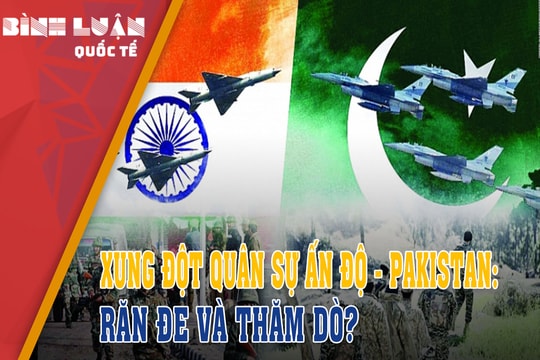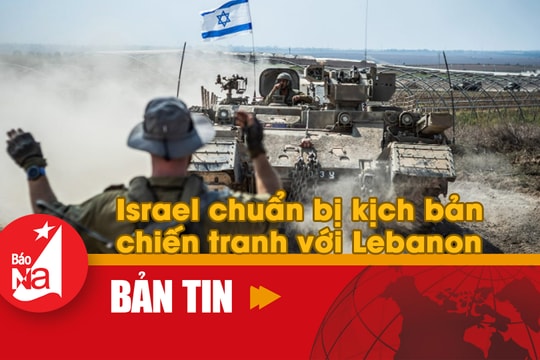Iran draws closer to Pakistan: the bipolar race in the Muslim world heats up again
(Baonghean) - Iranian President Hassan Rouhani's visit to Pakistan last week was aimed at promoting economic relations that are expected to be very promising. But the geopolitical context in the Middle East - South Asia and the Islamic world provides even more distant forecasts. It seems that both sides want to promote cooperation, but also balance their foreign relations.
Neighbors with great potential
The lifting of Western sanctions on Iran is a perfect condition for Pakistan to upgrade its bilateral relations with its neighbor. That was also the main topic of discussion during Iranian President Hassan Rouhani's visit to Pakistan.
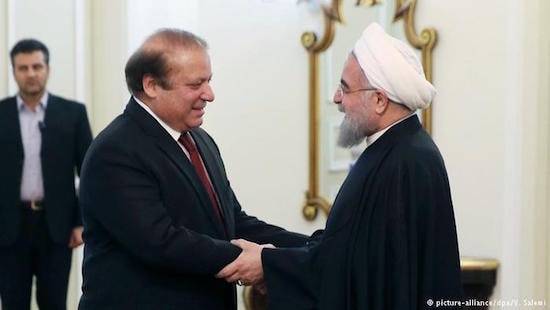 |
| Iranian President Hassan Rouhani's visit to Pakistan will open up many areas of cooperation between the two countries (source: Deutsch Welle) |
As affirmed by the leaders of the two countries, there are many areas that the two sides can exploit such as trade, economy and energy. At the same time, the opening of two more border gates will be carried out to encourage and facilitate trade and promote people-to-people exchanges on both sides of the border.
"Our trade and economic relations have been hurt by the sanctions," Pakistani Prime Minister Nawaf Sharif explained at a joint press conference with President Rouhani, the first Iranian head of state to visit neighboring Pakistan in 14 years.
For his part, President Rouhani also said that the two countries' leaders discussed ways to exploit new potentials for cooperation in the fields of energy and maritime trade between Pakistan's Gwadar port and Iran's Chahbahar port. Speaking to reporters in Islamabad at the end of his visit, Mr. Rouhani stated:
“One of our main objectives is better economic interaction with the rest of the world, especially the countries friendly to Iran in the region. We want a corridor between Gwadar and Chahbahar, so that these ports will be connected through rail, road and also sea routes.”
During the visit, six trade and economic agreements, including a five-year Strategic Trade Cooperation Plan to establish a mechanism to address issues that could harm bilateral trade, were signed.
Analysts say the scope for cooperation between the two Muslim neighbors is much larger. Regional public opinion is curious about the possibility of resuming one of the important energy cooperation projects, the $7.5 billion gas pipeline. Iran has completed the 1,800km pipeline worth $2 billion on its territory since March 2013. Pakistan has yet to start construction due to international sanctions against Iran.
However, with China’s backing, the country has recently pushed ahead with plans to participate in an ambitious $46 billion “Silk Road” economic corridor linking western China to Pakistan and other Middle Eastern countries. Once completed, the project will help solve Pakistan’s longstanding energy shortage, with gas imports costing up to $2.5 billion a year.
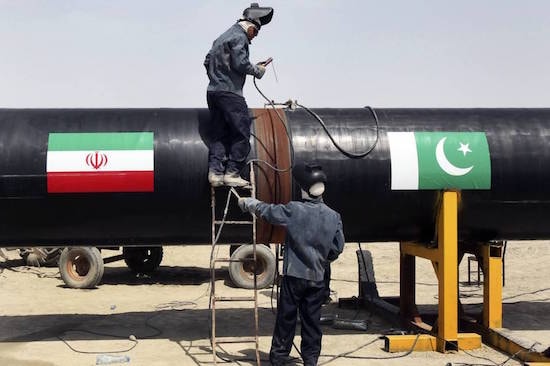 |
| Iran-Pakistan gas pipeline - the most ambitious project between the two countries in the future (source: The Wall Street Journal) |
Strategy chess board
Although it is known that this visit is mainly aimed at promoting economic interests, public opinion in the region cannot help but wonder when the Iranian President visits Pakistan - a country with close relations with Saudi Arabia - at a time when Iran's relations with Saudi Arabia are tense.
It is believed that Iran is trying to draw Pakistan to its side in the strategic competition in the Middle East. The leaders in Islamabad are also skillful in trying to harmonize relations between the two largest poles of the Muslim world while still ensuring maximum national interests.
Mosharraf Zaidi, a former adviser to the Pakistani Foreign Ministry, said the Iranian president's visit was a "positive sign" that Pakistan would not "sacrifice its useful and practical relationship" with Iran to maintain relations with Saudi Arabia and other Gulf countries.
Pakistan, which has a large Sunni Muslim population, has normal relations with Iran, where Shiite Muslims are the majority. The good diplomatic relations between the two sides are vivid evidence to convince Saudi Arabia to have a positive attitude. In January, during a visit to Iran, Prime Minister Nawaz Sharif even mentioned the possibility of organizing talks between Iran and Saudi Arabia to resolve the disagreements after Riyadh executed Shiite Muslim cleric Sheikh Nimr al-Nimr, which led to the Saudi embassy in Tehran being attacked by protesters.
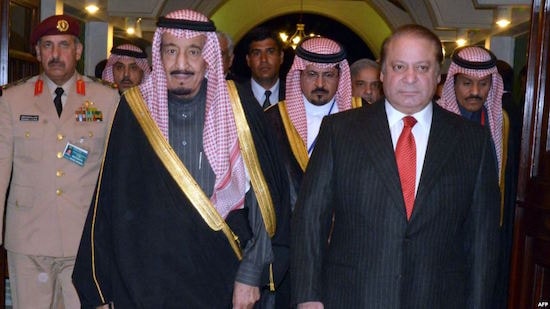 |
| Balancing relations with the two Islamic powers Iran and Saudi Arabia will be a major strategic problem for Islamabad. (source: VOAnews) |
Pakistan knows all too well the sensitivity, if not the danger, of alliances in the Muslim world. It has flatly rejected the Arab coalition against the Iran-backed Houthi rebels in Yemen. This resolute refusal has made the relationship between Riyadh and Islamabad seem colder. But that does not mean Pakistan can “let go” of this ally because of the close military cooperation that has existed for decades.
Which partner to choose and what to prioritize at present and in the future to avoid falling into a spiral of conflict while ensuring and promoting national interests is a strategic problem that requires Pakistan's consideration./.
Thanh Son
| RELATED NEWS |
|---|

